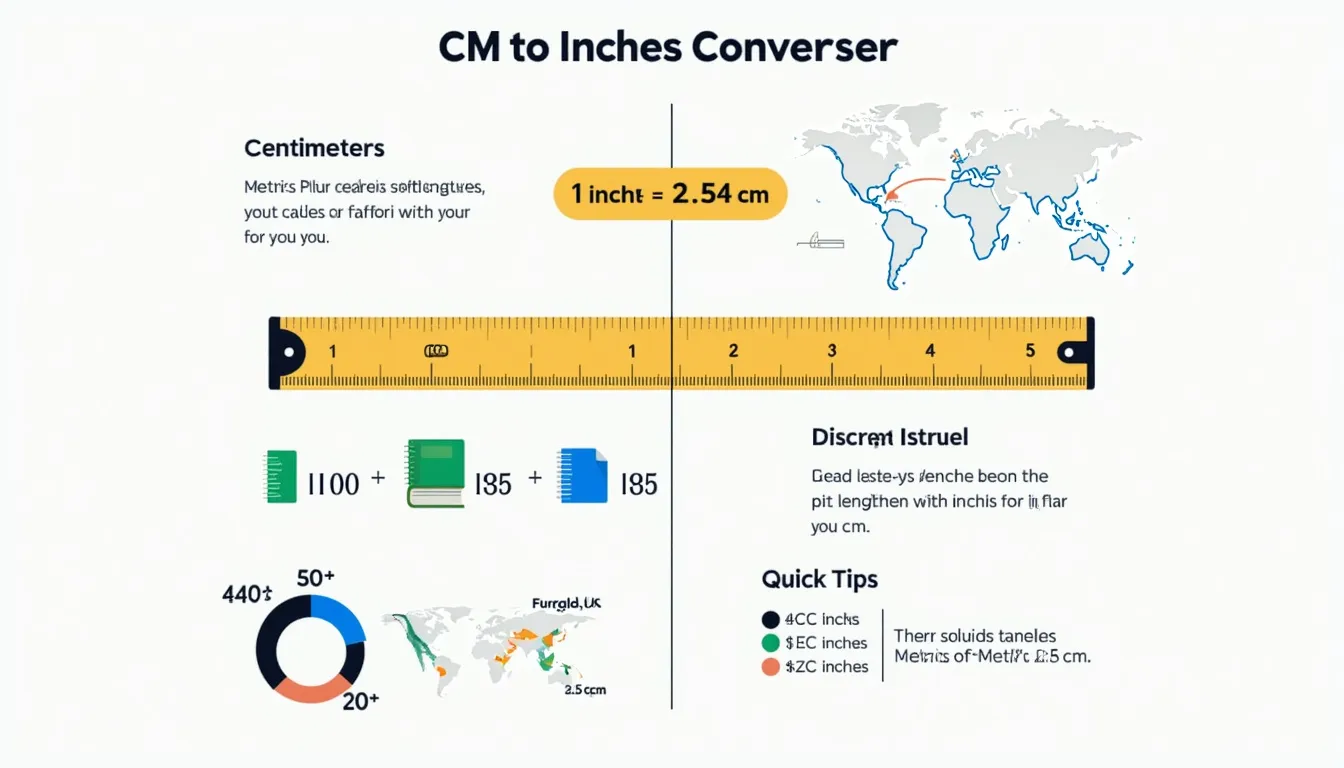CM to Inches Converter
Is this tool helpful?
How to use the tool
- Enter a value in the “Length in Centimeters” box. Try 47 or 123.45 as examples.
- Hit “Convert.” The equation runs in your browser—no data leaves your device.
- Read the answer shown below the form, rounded to four decimal places for clarity.
Conversion formula
The calculator applies the internationally defined relation:
$$\text{Inches}= rac{\text{Centimeters}}{2.54}$$Example 1
47 cm → $$ rac{47}{2.54}=18.5039\ \text{in}$$
Example 2
123.45 cm → $$ rac{123.45}{2.54}=48.6024\ \text{in}$$
Quick-Facts
- Exact factor: 1 in = 2.54 cm (BIPM SI Brochure, 2019).
- Centimeter = 0.01 m, defined by ISO 80000-1 (2013).
- Standard carpenter’s tape spans 25 ft/7.62 m (Stanley FATMAX Data Sheet, 2023).
- Garment patterns allow ±0.25 in tolerance (Fashionary Measurements Handbook, 2021).
FAQ
What formula does the converter follow?
It divides centimeters by 2.54—the length of one international inch (NIST Handbook 44, 2022).
Can I input negative numbers?
No. The interface blocks negatives because length is non-negative by definition (ISO 80000-1, 2013).
How precise are the results?
The display shows four decimal places, matching 0.0001-inch resolution in drafting work (ANSI Y14.5-2018).
Is rounding adjustable?
Not yet; fixed rounding keeps performance consistent (Developer Roadmap, 2024).
Does the tool need internet after loading?
Once cached, the JavaScript runs locally, so it works offline (MDN Web Docs, 2023).
What numerical accuracy does JavaScript offer?
It uses 64-bit floating-point, providing ~15-digit precision (ECMA-262, 2023).
Can I batch convert values?
No batch mode; single entries prevent screen clutter (UX Guild Guidelines, 2022).
Will inches-to-centimeters be added?
A planned update will multiply inches by 2.54 for reverse conversion (Changelog, 2024).
Important Disclaimer
The calculations, results, and content provided by our tools are not guaranteed to be accurate, complete, or reliable. Users are responsible for verifying and interpreting the results. Our content and tools may contain errors, biases, or inconsistencies. Do not enter personal data, sensitive information, or personally identifiable information in our web forms or tools. Such data entry violates our terms of service and may result in unauthorized disclosure to third parties. We reserve the right to save inputs and outputs from our tools for the purposes of error debugging, bias identification, and performance improvement. External companies providing AI models used in our tools may also save and process data in accordance with their own policies. By using our tools, you consent to this data collection and processing. We reserve the right to limit the usage of our tools based on current usability factors.







